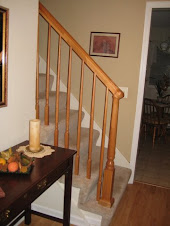
A major expense squeezing homeowners today is heating and cooling cost. Although green upgrades are often expensive, their benefits can be large over time. Witness solar panels, double pane windows, and replacing appliances. All of these require sizable investments up front. But energy efficiency doesn't have to be expensive or labor intensive.
Small changes such as weather stripping can add up over time. Flourescent light bulbs can replace incandescent with minimal investment. Wrapping hot water heaters with insulation is inexpensive and requires little effort. In addition, the temperature on a hot water heater can be turned down to reduce waste and reduce accidental burns. Some laundry can be washed in cold or warm water rather than hot. Shorter showers will reduce hot water costs. Adjusting the heat and air thermostat 2-3 degrees can make a sizable difference in utility bills. These options require minimal effort and investment.
Check off energy efficient and environmentally-friendly changes one at a time, starting with the least expensive if you wish. You may be surprised at how quickly you see a difference in your utility bill. Most worthwhile and important changes in life take time. "Going green" may bring attractive results in your budget with minimal effort and investment. The extra money at the end of the month can provide the motivation you need to help you decide to use that bonus or income tax refund so you can install more costly green options, benefiting you and your neighbors.






